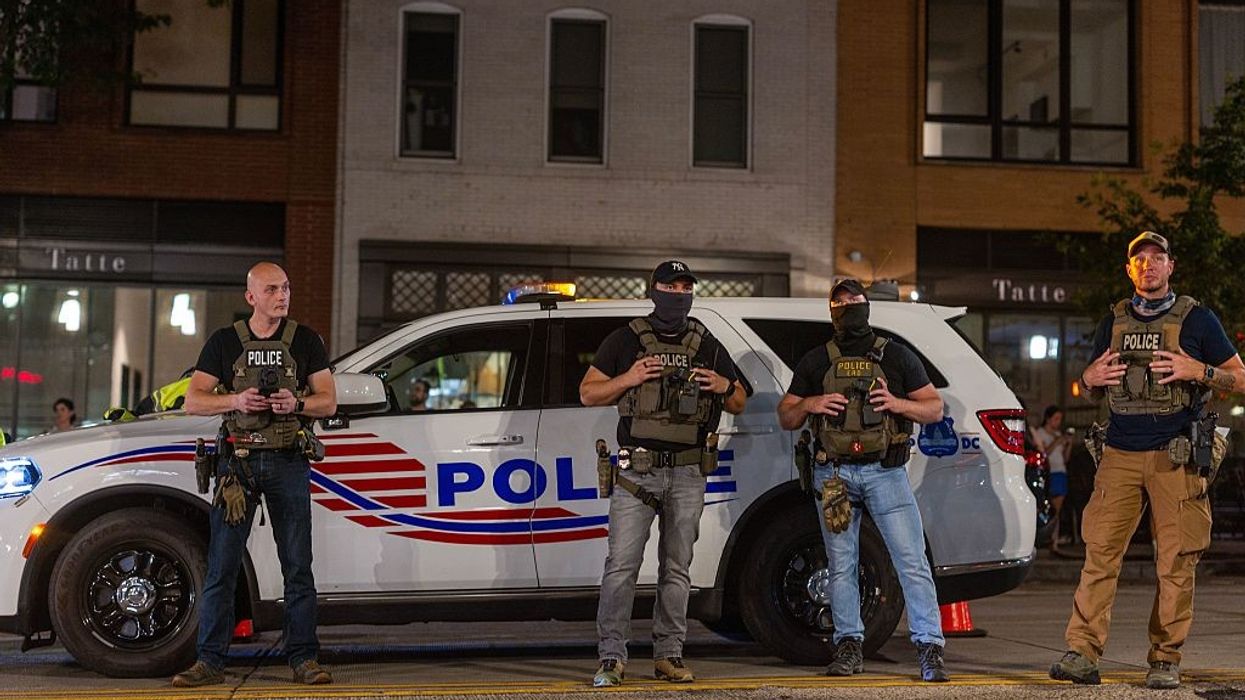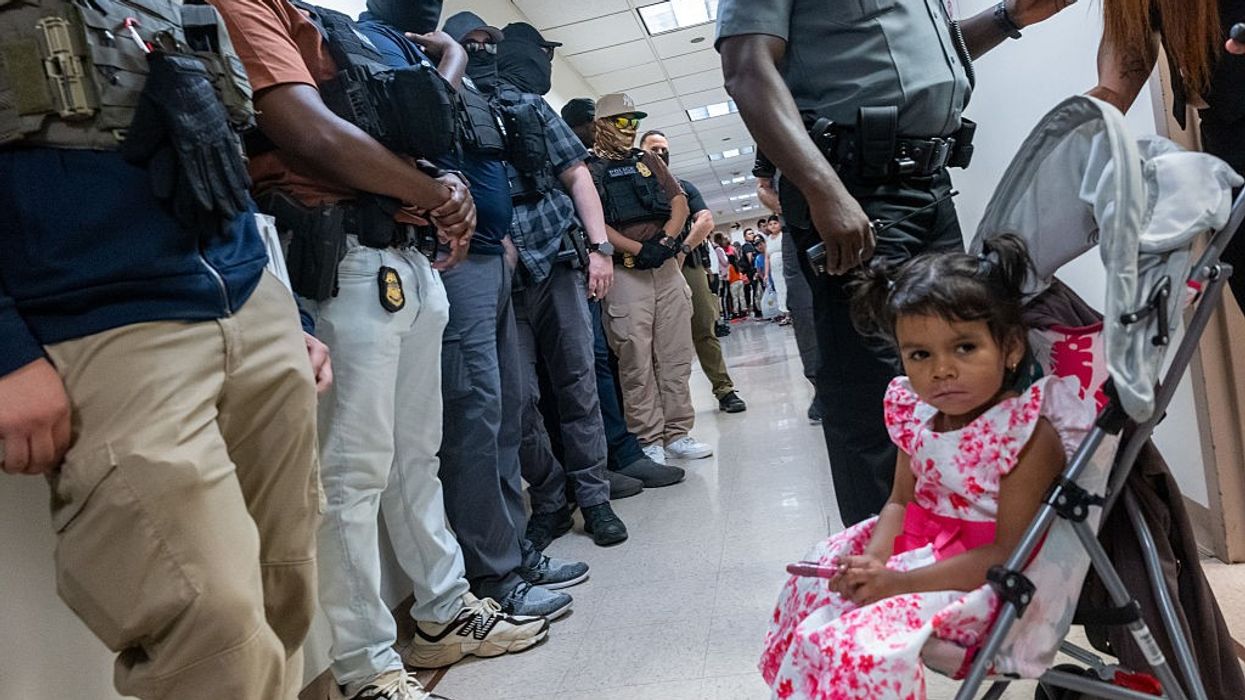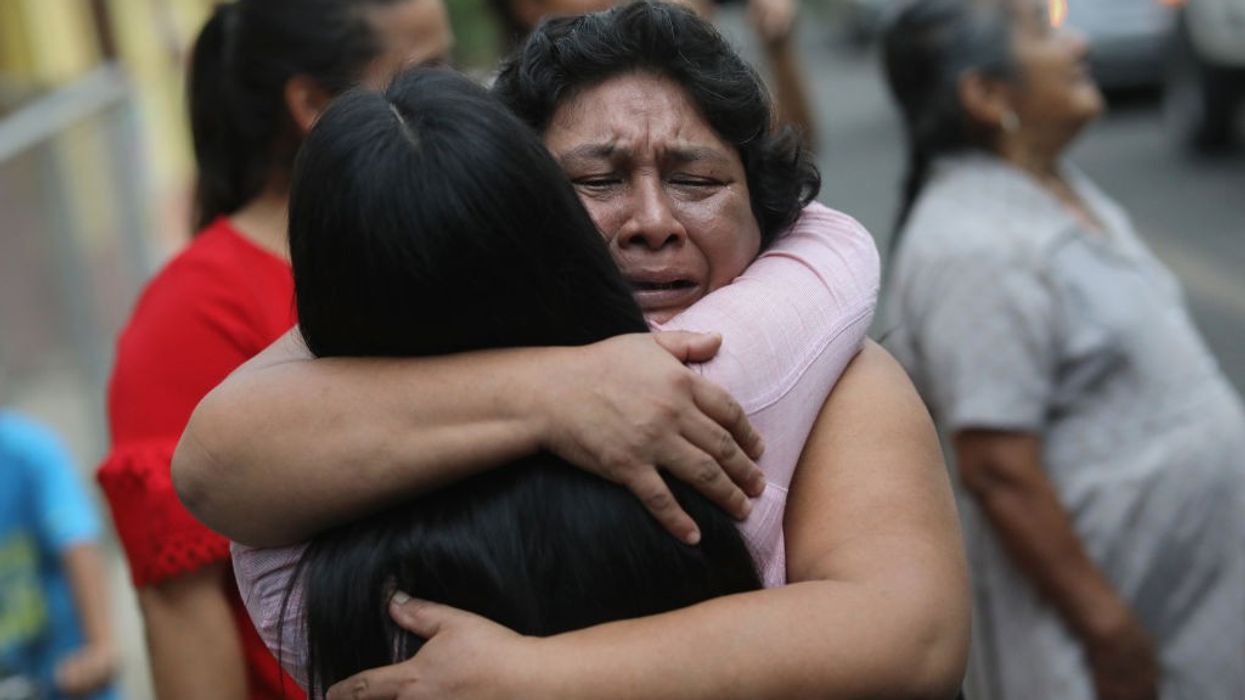The practice is not as widespread as it was under the first Trump administration's "zero tolerance" immigration policy, when the ACLU estimated that approximately 5,500 children—including some with physical and mental disabilities—were torn from their families.
"But the new cases suggest that the administration has decided to use family separation as a tool, at least in some instances, to persuade families to leave and to create a powerful deterrent for those who might come to the United States illegally," Aleaziz wrote.
Aleaziz highlighted the case of Evgeny and Evgeniia, who fled Russia with their 8-year-old son Maksim to seek political asylum in the United States.
Evgeniia said via an interpreter while in U.S. Immigration and Customs Enforcement (ICE) custody that her family traveled to the U.S.-Mexico border seeking an appointment through a Biden-era program that allowed people to enter the United States at a port of entry if they registered using the glitch-plagued CBP One app.
However, Trump canceled that program on his first day of office, and the couple decided to present at a port of entry and request asylum. They were immediately detained. Then they were given a choice: leave the United States and return to Russia as a family, or remain in ICE custody while they pursued their asylum claim, but Maksim would be taken from them and placed in a shelter.
Fearing for their future in Russia, Evegeny and Evgeniia chose separation.
"A few days, right?" Maksim begged as he was taken away. "A few days?"
Evgeny replied, "Yes, yes, it will be just a few days."
That was on May 15.
Authorities later determined that risks faced by Evgeny and Evgeniia in Russia precluded their deportation. However, they remain in ICE detention—and Maksim in a foster home—pending the outcome of their asylum case.
"It's terrible, that's what I can say," Evgeniia told Aleaziz. "I wouldn't wish it even to an enemy. It's a constant grief and longing."
Responding to Aleaziz's article, Sarah Pierce, director of policy at the centrist think tank Third Way, wrote on the social media site Bluesky that "this administration is picking right back up where it left off with family separation—giving parents a 'binary choice' between imminent danger or surrendering their children."
The New York Immigration Coalition asserted on X that "the family separation policies of the first Trump administration were disastrous, and their resurgence cannot be tolerated."
U.S. Department of Homeland Security spokesperson Tricia McLaughlin told the Times that ICE "does not separate families," despite copious evidence to the contrary—including testimonials in Aleaziz's article and elsewhere.
"The parents had the right and the ability to depart the country as a family and willfully choose to not comply," McLaughlin said of Evgeny and Evgeniia.
However, there have been many cases in which no such choice was offered. Last week, Adam Isacson of the Washington Office on Latin America and Diana Flórez of the Women's Refugee Commission said that "the extent of involuntary family separation is far greater than we expected," including "hundreds" of U.S. citizen children who have been separated from undocumented parents after their arrest.
In their recent analysis, Isacson and Flórez pointed to the new ICE's new Detained Parents Directive that they said "substantially weakens ICE's obligation to help parents facilitate reunification with their children before removal, which raises grave concerns that these involuntary separations are going to increase."
According to Isacson and Flórez:
In some cases, parents report to service providers that they are being removed without even getting a chance to communicate with their families at all. "They want to punish them for entering the United States, and they do it by targeting what they love the most—separating them from their families. It's not a coincidence; it's something that's been well-planned," said a social worker who works with deported families.
"It's a lie that they're giving them the choice to bring kids back with them," one social worker told the authors. "Every day, women arrive crying, but what can we do? I don't know how to help."
While several previous administrations used family separation for a variety of reasons including child endangerment, public safety, and national security, Claire Trickler-McNulty, a former ICE official who has served in Republican and Democratic administrations, told the Times, "I'm not aware of ICE previously using family separation as a consequence for failure to comply."
ACLU attorney Lee Gelernt said his organization is once again investigating the legality of Trump's policy.
"That the Trump administration has found a new form of family separation is hardly surprising given they have yet to acknowledge the horrific harm caused by the original policy and are now blatantly breaching provisions of the settlement designed to provide relief to those abused families, many of whom to this day still remain separated," Gelernt told the Times.
Despite the creation of a Family Reunification Task Force during the Biden administration, a December 2024 report published by Human Rights Watch, the Texas Civil Rights Project, and the Lowenstein International Human Rights Clinic at Yale Law School found that as many as 1,360 separated children had still not been reunited with their families.
On his first day in office, Trump canceled the task force. Tom Homan, Trump's "border czar" who oversaw family separation during the president's first term, has followed through on his vow to resume family separation.
Homan also said the Trump administration would "need to construct family facilities"—a euphemism for what critics call concentration camps, which have been used to imprison and even kill off officially undesired populations throughout U.S. history.




